The average horse stands approximately five feet tall (although ‘hands’ is the standard unit used to measure horse height; a hand is equal to 4 inches) and weighs between 800 – 1,200 pounds, which feels big enough to us! But what about the not-so-average horses? What is the biggest horse breed out there?
Horses have been domesticated by humans for thousands of years and have been associated with human culture since at least 2000 B.C.E. when the first evidence of domestication appeared. You only have to look at cave paintings, or the Bronze Age Uffington White Horse in Oxfordshire, for example, to see that horses have always been important to us.
Today we associate horses with sport and leisure, but traditionally they were used to transport people and goods, as well as being used in warfare for pulling chariots and moving cavalry and artillery. They’ve also traditionally been used to perform heavy farmwork, such as pulling agricultural equipment. To perform these tasks they needed to be strong and were bred to share the same physical characteristics; height, strength and a calm disposition.
But just how big can these horses get? What is the biggest horse in history?
Saddle up and get your stepladders out, we’re going to have a look at five of the biggest horses ever.
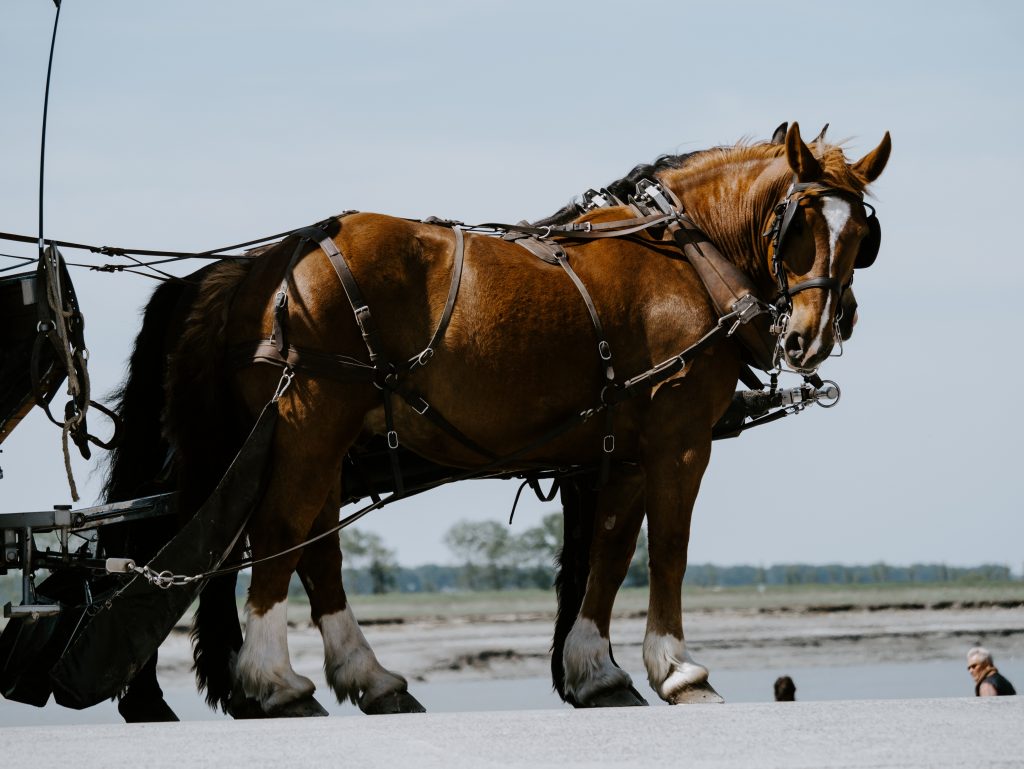
- The Shire Horse
We’ll start with probably the most well-known of big horses, the lovely Shire horse. Commonly thought of as one of the biggest horse breeds in the world, they can weigh between 1,800 – 2,400 pounds, and stand up to 19 hands tall. They were traditionally used to tow barges along the canals, as well as pulling carts and farming machinery. The development of machinery in agriculture and industry meant their numbers plummeted after World War II, but they’ve recently recovered thanks to organisations dedicated to preserving this mild-mannered breed. Fact fans might be interested to hear that the tallest, heaviest shire horse was a horse called Sampson, weighing in at 3,359 Ibs and 21.2 hands tall (7ft 2.5in). Rather aptly, he was later re-named Mammoth!
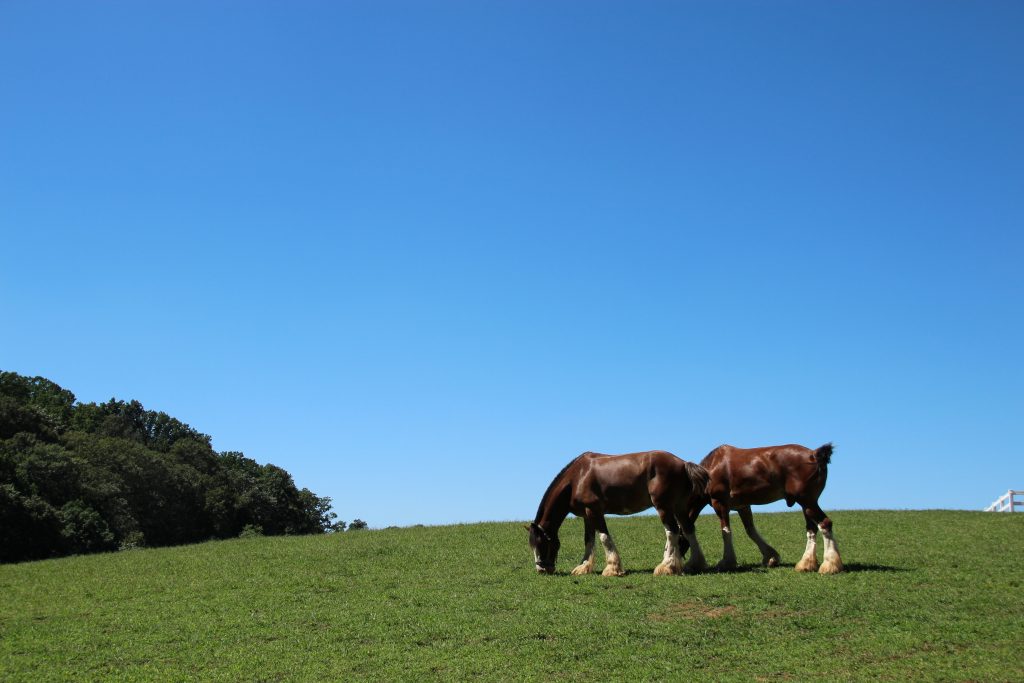
- The Clydesdale
Slightly smaller than the shire horse, the Clydesdale can be up to 18 hands high and weigh up to 2,000 pounds. They are famous for appearing in a beer ad since the 90s, and are known for their unique colouring; brown with white feathered ‘socks’. They’re often used on parades, and in shows, but are still at risk of extinction partly because of their size; it can be a real challenge keeping a horse that size, particularly as they can be described as ‘excitable’ – not a quality you want in a massive horse! The biggest Clydesdale in history was the impressively named King LeGear, who was 20.5 hands high and 2,950 Ibs at the age of 7.
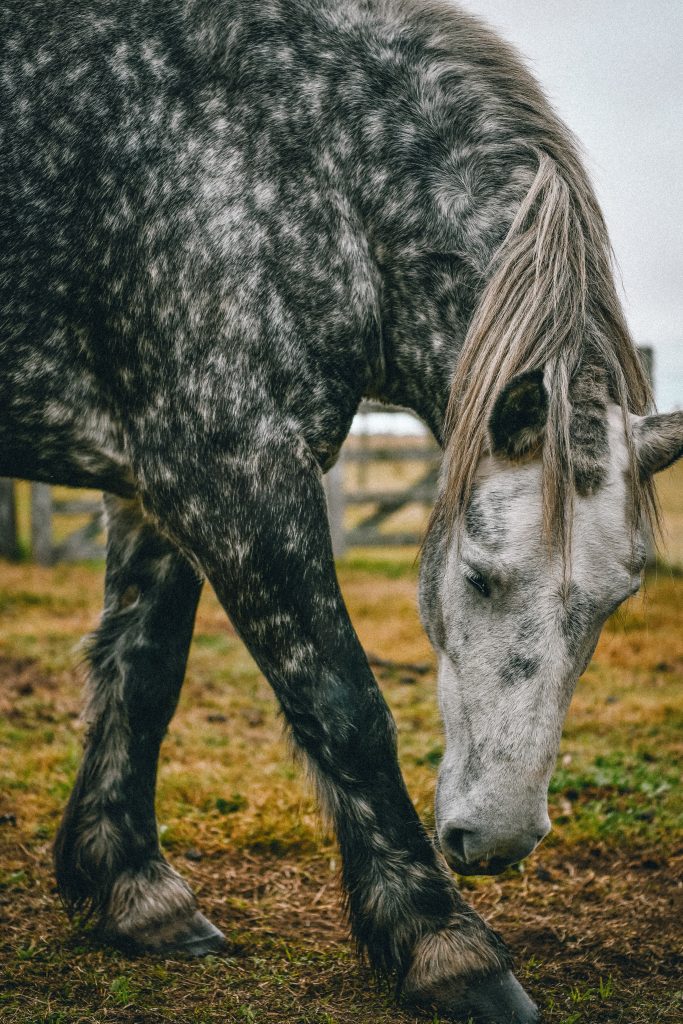
- The Percheron
Originating in France, in the Perche region, these horses can be anything from 15 – 19 hands tall. They were originally used as coach horses in the 19th century but are now mainly used in parades and horse shows. Unlike most heavy horses, they’re also suitable for heavier riders. In our last category we talked about the biggest Clydesdale horse, King LeGear, but another horse from the same farm, Dr LeGear, was also a record breaker and is the biggest Percheron, weighing in at a whopping 2,995Ibs and standing 21 hands tall making him both the heaviest and the tallest horse in history. All we want to know is, what were the LeGear horses given for breakfast!
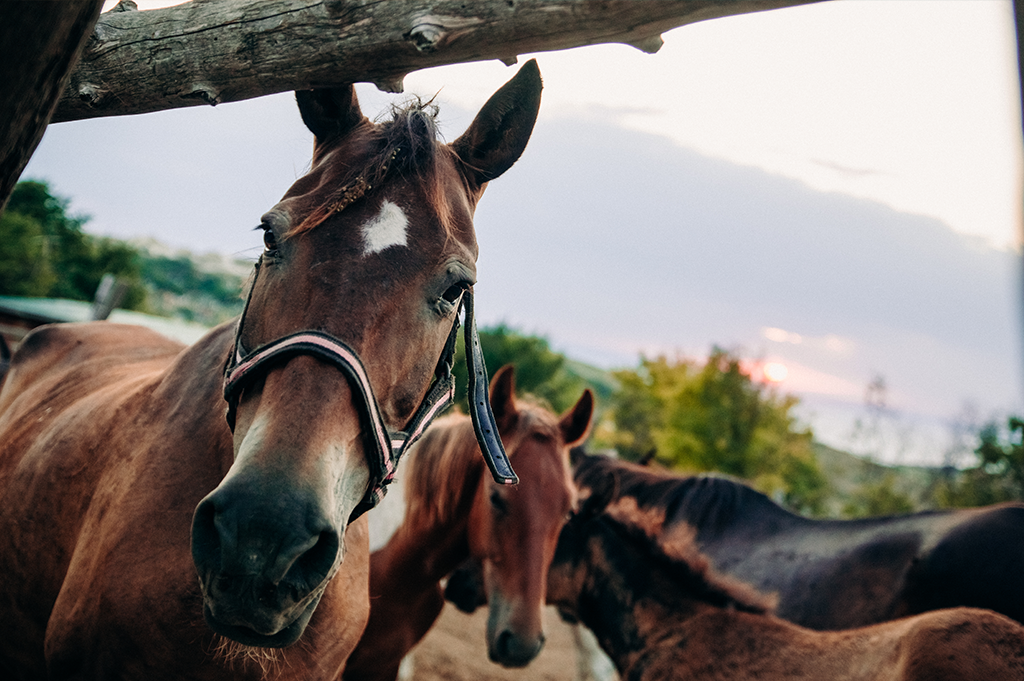
- The Belgian Draft Horse
Known as the strongest horse breed in history, this is one of the few large horse breeds that isn’t at risk of extinction. Standing between 16 – 18 hands, and weighing on average around 2,200 lbs, they have a very wide, short back. They are traditionally used in heavy farming work and two Belgian drafts are on record as pulling a hefty 7,700kg between them. The title of biggest Belgian draft goes to Big Jake who broke the record for tallest living horse in 2010. Standing at 20 hands tall and weighing 2,600 lbs, Jake needed a special diet that consisted of two bales of hay each day, lots of vitamins and as many oats as he could get his hooves on.
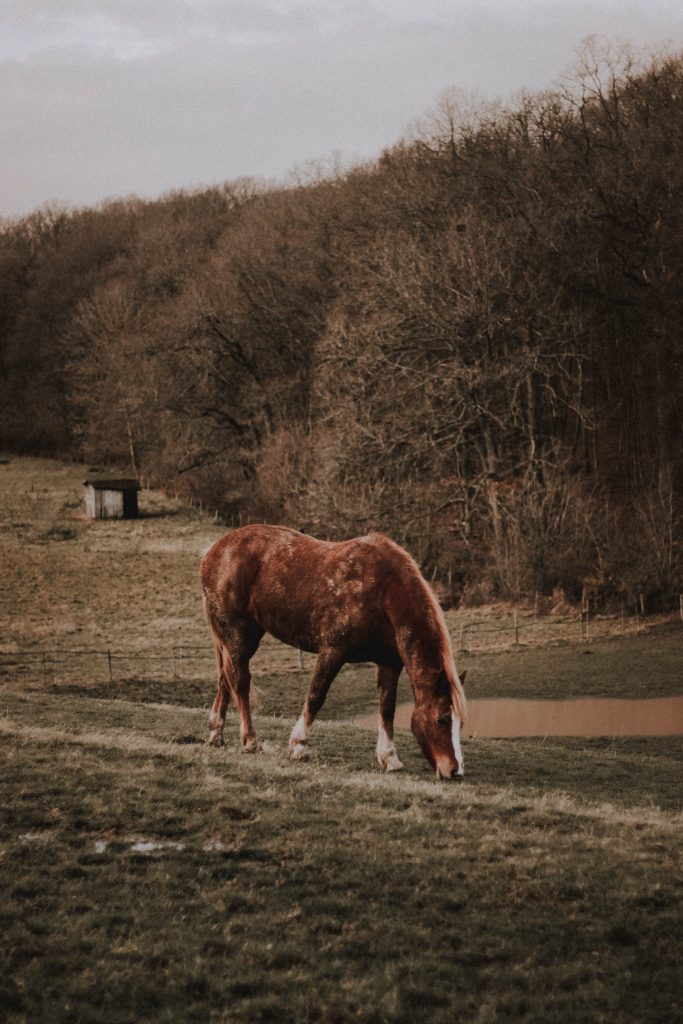
- Suffolk Punch
These are one of the oldest and rarest draft breeds in existence; it’s mentioned as far back as 1586 and as of 2016 they are considered to be critically endangered. They weigh around 2000 lbs and can be up to 17 hands high and while they still do a lot of farm and forestry work, they are also used a lot in the advertising industry due to their striking good looks and chestnut colouring. To end with some good news about these lovely horses, a farm in Suffolk recently welcomed the arrival of Iris, a Suffolk punch foal. At a time when there are currently fewer than 75 Suffolk Punch horses in the UK, and only 300 in the world, this is excellent news for the breed.
We love horses here at The Insurance Emporium, take a look at one of our colleague profiles to hear just how important they are to us; we know that riding is so much more than just a form of exercise, or a type of sport. If learning about these beautiful breeds has inspired you to get out there yourself, check out our guide to the five most common horse breeds, as well as our blog about choosing the right horse for you.
Of course, we can’t let you go without reminding you of the importance of horse insurance, whether that’s as an owner, or just a horse rider. With a range of Optional Benefits to choose from, you can put together a policy that’s as unique as your horse, whatever its size.
All content provided on this blog is for informational purposes only. We make no representations as to the accuracy or completeness of any information on this site or found by following any link on this site. We will not be liable for any errors or omissions in this information nor for the availability of this information. We will not be liable for any loss, injury, or damage arising from the display or use of this information. This policy is subject to change at any time.
We offer a variety of cover levels, so please check the policy cover suits your needs before purchasing. For your protection, please ensure you read the Insurance Product Information Document (IPID) and policy wording, for information on policy exclusions and limitations.


